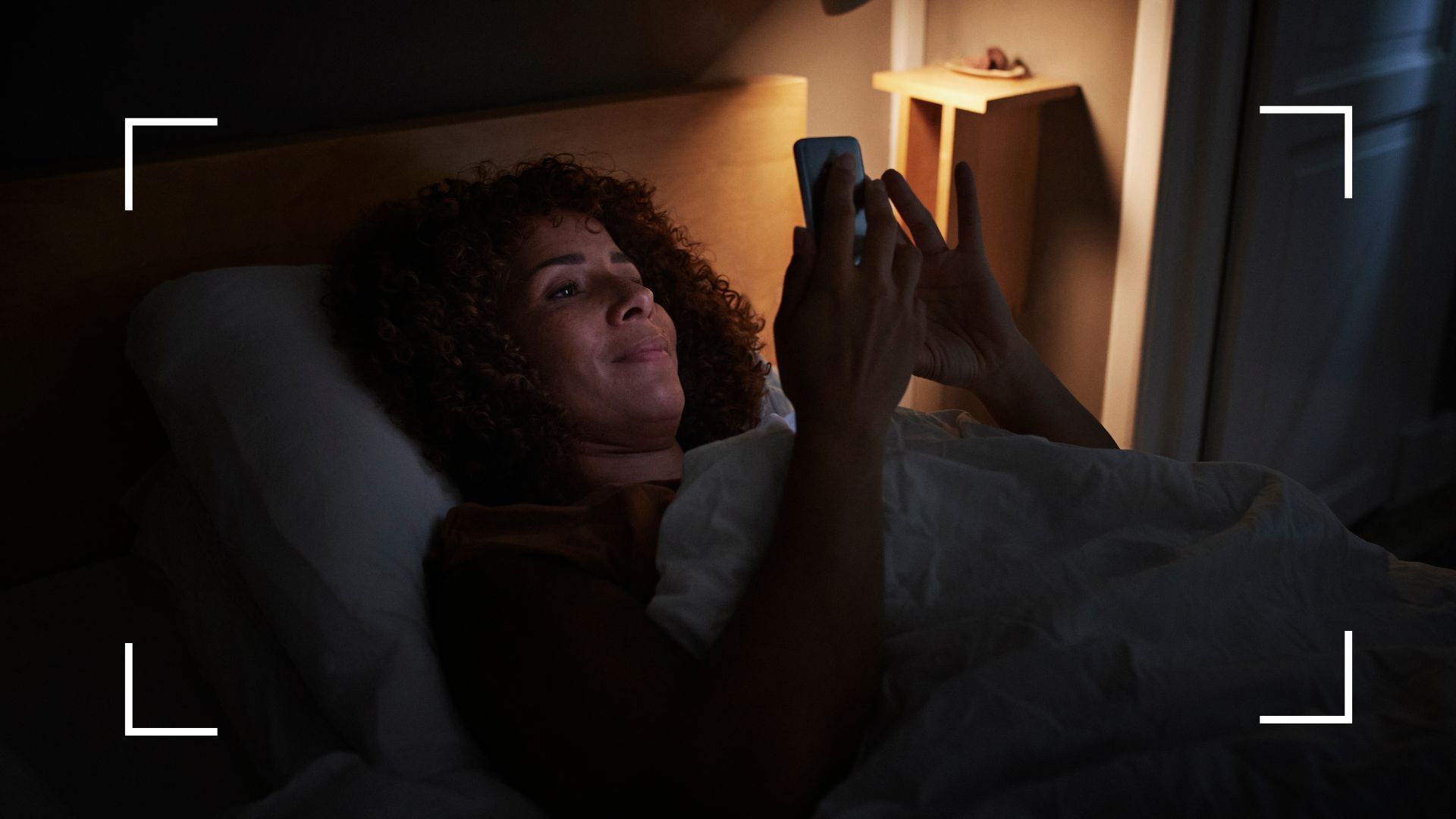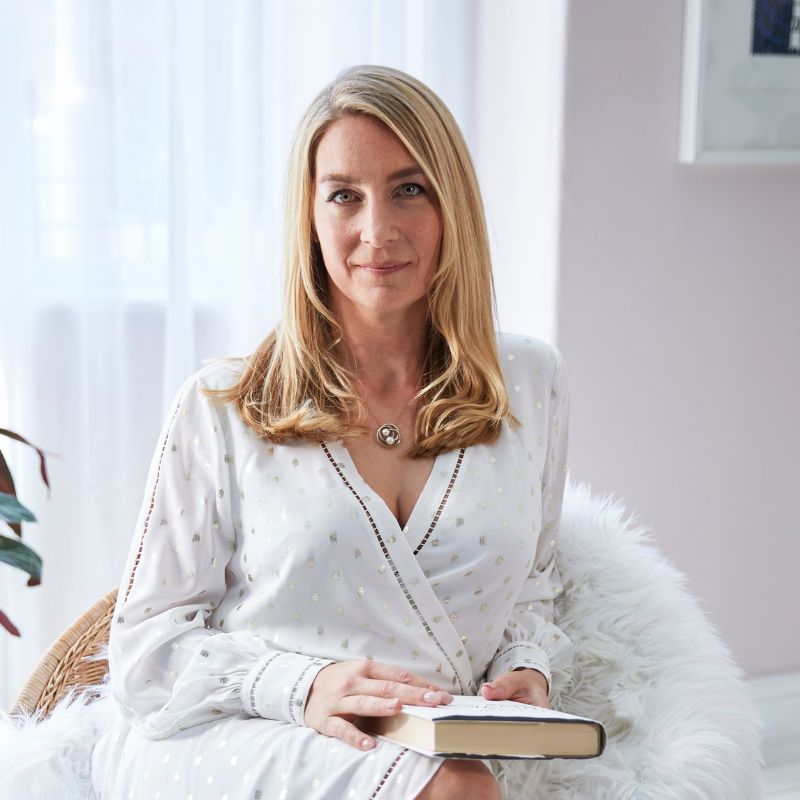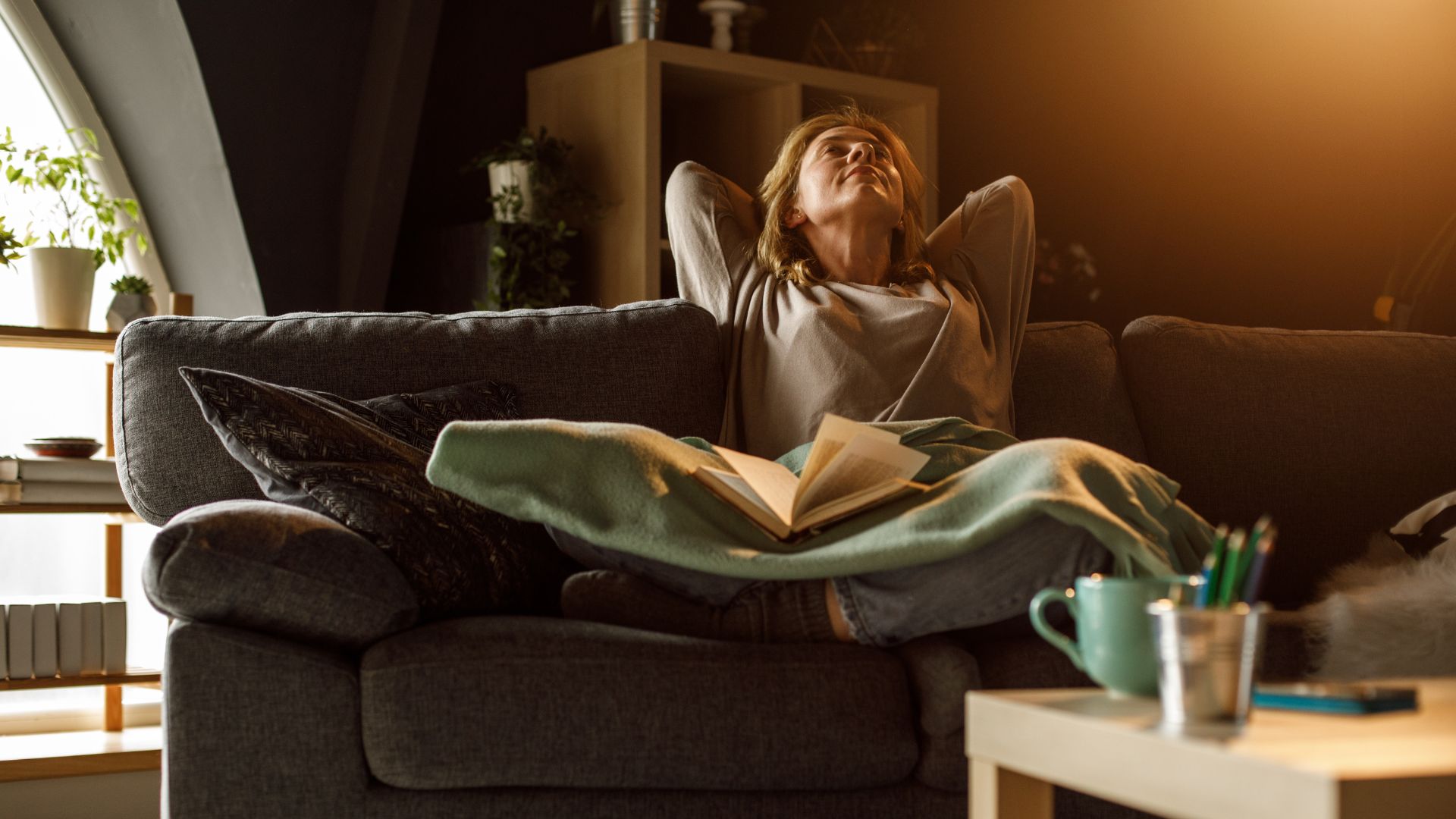What is the best noise for sleep? Neuroscientist reveals how to find the sound for you
Finding the best noise for sleep out of the white, pink, brown and other varieties can help you block out distractions and drift off quicker


The best noise for sleep differs between individuals, depending on various factors such as your current sleep environment, various medical conditions, and plain personal preference. However, there are some noises on the colour-labelled spectrum that have more backing and research behind them than others.
If you struggle to know how to sleep better or find yourself waking up in the middle of the night and can't get back to sleep, you could benefit from finding your best noise for sleep. More than anything else, it can help you concentrate and block out disruption from the outside world - whether that's outside your home or your head.
You may have heard of white noise, pink noise, and brown noise for sleep, but what are they and do they actually help improve your sleep? These questions and more we put to Dr Lindsay Browning, psychologist, neuroscientist and sleep specialist to find out more.
What is the best noise for sleep?
If you're new to the colour-labelled soundscapes, the best noise for sleep will be pink noise. "Pink noise is generally more popular to listen to [compared to other noises] as it sounds more pleasant and less shrill compared to white noise for sleep. Also, pink noise can include lots of natural sounds such as light rain or wind," says neuroscientist and sleep specialist Dr Browning, who is also the resident expert at And So To Bed.
There is also research to suggest there is at least some evidence of its sleep-inducing effect. "Some studies by a collection of New York universities have found improvements while listening to white noise, some have found improvement while listening to pink noise. One recent study by Pennsylvania State University has also found that pink noise may improve deep sleep, while others (from the University of Lübeck) suggest that pink noise may be helpful for memory consolidation but only where the noise itself is synchronised with the brain's natural slow-wave sleep."
However, the research on the best noise for sleep is minimal at the moment. To improve memory consolidation via pink noise, Dr Browning warns that you'd need to get a sleep technician involved "to control the pink noise to match the sleeping person's brain waves, which is not possible when you simply play a generic pink noise sound." Other studies also suggest that pink noise doesn't improve sleep at all.

Dr Lindsay Browning is a chartered psychologist and associate fellow of the British Psychological Society, a member of the British Sleep Society, a sleep specialist, author of the self-help sleep book, Navigating Sleeplessness, and the in-house expert for And So To Bed.
Dr Browning has a doctorate from the University of Oxford, where she investigated the relationship between worry and insomnia. She is passionate about helping people of all ages to sleep well, working with organisations and hotels to offer sleep consultancy and better sleep sessions.
White noise is also thought to be beneficial as one of the best noises for sleep. "White noise contains all the frequencies of sound at the same volume leading to a sound which resembles static from the radio, for example," she says. For the same reasons that pink noise works, white noise does too. However, it's a lot more artificial in sound and some people find it unpleasant.
Sign up to our free daily email for the latest royal and entertainment news, interesting opinion, expert advice on styling and beauty trends, and no-nonsense guides to the health and wellness questions you want answered.
"Brown noise for sleep is similar to pink noise but contains lower frequency sounds, and overall, it sounds deeper pitched than pink noise. Natural examples of brown noise include rumbling thunder or heavy rainfall." The effect of this noise on the brain is why rain makes us sleepy.
Benefits of listening to noise for sleep
1. It can help block out disruptive outside sounds
The number one advantage of listening to any kind of noise while you drift off is that the sound can block out unwanted sounds. This is the crux of why it's recommended for those who struggle to sleep and wake up in the middle of the night.
"When we are asleep, our brain continues to monitor our environment for external sounds, specifically to help us wake up and deal with any dangers identified. That is why we are woken up by our alarm clock or a smoke detector. This means that if we sleep somewhere noisy, our sleep may be disrupted," says Dr Browning.
For example, if you live on a busy road, next to a hospital or other emergency service centre, or you just have noisy neighbours, having noise playing directly into your ears can help minimise (or totally get rid of) this disruption and help you get the amount of sleep you need.
"People have resorted to using noise machines to produce white, pink noise etc to mask these external sounds that may wake us from sleep."
2. It can help block out disruptive inside sounds too
As much as we might like to cosy up with a significant other (and there's plenty of research on the benefits of doing so, including the release of oxytocin, aka, the 'happy hormone'), there appears to be more research every day that suggests the opposite for some people.
For example, studies by the University of Illinois College of Medicine looked at brain-wave activity and/or body movement and found that people who shared a bed experienced worse sleep quality compared to those who slept alone. Specifically, coupled-up sleepers experienced less REM sleep (which we need for maintaining our mood and memory, and helping with learning) and increased physical activity during the night.
So naturally, if you can handle the idea of listening to your best noise for sleep with headphones, you can block out sounds much closer to you as well. Not only will this improve your sleep but with sleep divorce on the rise thanks to the rising awareness of the issue, it could save your sleep setup too.
3. May help those with tinnitus
For those experiencing tinnitus (a ringing in the ears), sleep can be difficult. However, neurologist Dr Browing says that listening to noise while trying to get to sleep at night can really help.
"Tinnitus can disrupt sleep because the irritating sound can seem much more noticeable and disturbing in the silence of the middle of the night," she explains. "Many people with tinnitus actively use noise machines, especially natural sounds such as rainfall or ocean waves, to minimise the internal tinnitus ringing in their ears."
4. Noise can help to reduce stress
A review by Kerman University of Medical Sciences shows that unwanted background can elevate our levels of cortisol (the stress hormone). Typically, anything above 120 dB can wake us up no matter how deep of a sleep we're in. This includes the sound of a motorcycle, a car revving its engine, or fireworks, all of which you're likely to hear at some point - especially if you live in a city.
Being able to block this out with your choice of the best noise for sleep can make all the difference, considering that stress is often cited as one of the key reasons for insomnia.

5. May actually help you sleep better
White, pink, and brown noise are particularly recommended for those who have trouble sleeping - but there's actually little scientific evidence that it helps us sleep on a neurological basis. I.e. that even the best noise for sleep has any actual impact on the brain. Sometimes, it's not so much what noise does to the brain but what we think it does to the brain that matters.
"Although listening to background sounds can help to mitigate disruption whilst sleeping in a loud environment, many people who struggle to sleep use white noise, pink noise, audiobooks, and so on because they believe it helps their sleep," says Dr Browning.
"The scientific studies conducted so far have been conflicting as to whether listening to background noise during sleep is actually beneficial for our sleep," explains the neurologist. "Hunter College of the City of New York University conducted a meta-analysis study of 34 studies where people used white and pink noise machines, and found no clear evidence that listening to these devices improved their sleep. However, they also did not find clear indications that they were harmful to sleep. Therefore, if you find listening to a noise machine helps you to sleep better there doesn’t seem to be a good reason for you not to do that."
Who is pink noise best suited for?
Natural examples of pink noise include light, rain, wind or a bubbling stream and these natural sounds can feel pleasant to listen to as well as being able to mask external noises that may disrupt sleep, says Browning. So if you find the gentle sound of rainfall outside your window comforting when you're trying to get to sleep, pink noise could be for you.
"Also, there is interesting research to suggest that specific types of pink noise may be beneficial for memory consolidation, but this is extremely early research and we need a great deal more studies before any firm conclusions can be drawn."
Who is white noise best suited for?
White noise, which includes mechanical sounds like whirring fans and radio static, is made up of all frequencies. It's thought, per research from The University of Queensland, that it may be particularly beneficial for studying and working, with the study suggesting that white noise helps adults learn new words. It's also thought to be beneficial for those with ADHD.
"Many people find the sound unpleasant to listen to," says Browning. "However, that's not the case for everyone and some people can find listening to white noise in the background helpful." Typically, this is done through one of the best white noise machines or a music playlist.
What are the other types of noise for sleep?
- Brown noise: A constant low frequency, such as crashing waves or very heavy rainfall.
- Violet noise: One of the higher pitched colour noises, it's the opposite of brown noise. For example, the sound of a dentist's drill.
- Green noise: Mid-range frequencies with minimal intensity, which often translates to nature sounds but also includes the soft sound of murmur in a crowded room.
- Blue noise: Minimal and low frequency, constant with no spike in energy, such as a powerful water spray.
- Grey noise: Similar to white noise in many ways, it includes higher and lower frequencies but not much in the middle.
- Black noise: Otherwise known as silence, so-called 'black noise' is a lack of noise or some noise at random intervals.
With so little research on the best noise for sleep, if you don't find that pink, white, brown, or any of the other types of noise work for you, it may be time to have a look at other elements of your sleep routine. Improving your sleep hygiene by removing your phone to reduce the impact of blue light and decluttering your space can certainly help, as can taking a look at other sleep aids such as earplugs.
If you have any concerns about your sleep health, speak to your doctor.

Grace Walsh is woman&home's Health Channel Editor, working across the areas of fitness, nutrition, sleep, mental health, relationships, and sex. She is also a qualified fitness instructor. In 2025, she will be taking on her third marathon in Brighton, completing her first ultra marathon, and qualifying as a certified personal trainer and nutrition coach.
A digital journalist with over seven years experience as a writer and editor for UK publications, Grace has covered (almost) everything in the world of health and wellbeing with bylines in Cosmopolitan, Red, The i Paper, GoodtoKnow, and more.